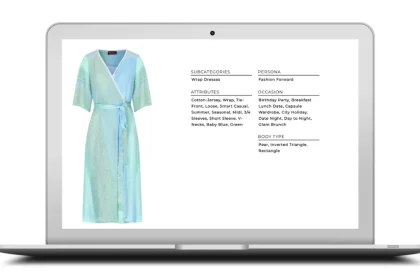Paying attention to hair health is one of the most important concerns of humans since the past. Because it is directly related to personal and mental health. Although there are many factors that are effective in hair care, what we are discussing in this article is to check the regular use of sulfate free shampoos. Is the constant use of free sulfate shampoo harmful? To answer this question, read this article.
Read before you start
Have you ever wondered what ingredients cause foaming in shampoo, soap, toothpaste, and other similar products?
Sulfates. These compounds are the foaming and cleaning agents in head and body wash products. Sulfates are considered the best cleaners; But they have a big problem. They also remove important hair oils, which over time can reduce moisture and dry hair. For this reason, although sulfate-free shampoos have many fans today and their sales market is also hot, it is unclear whether the use of sulfate-free shampoos is harmful. To answer this question, let’s first see what sulfate is.
What is sulfate?

Sulfates are a group of chemicals that can be of natural or synthetic origin. In general, sulfates are substances that are used in the production of detergent products. Due to the reduction of surface tension in its ingredients, this material makes the product easier to mix with water and creates a lot of foam. Be aware that many household products such as various cleaners including toothpaste, dishwashing liquid, hand sanitizer, soap, and shampoos contain sulfates.
In general, there are three types of sulfate derivatives in store-bought shampoos, which include:
1. Sodium lauryl sulfate
2. Sodium laureth sulfate
3. Ammonium Lauret Sulfate
As we said, although these three items are derived from sulfate, they play the same role in the mentioned materials.
Why are there sulfates in shampoos?
The answer to this question is related to the characteristics of the sulfate substance; One of the important reasons is that sulfate makes it easier for the mentioned liquid to mix with water and create foam. It may also help any active ingredients in the shampoo to remove excess dirt and oil. And another reason is that because the foam of the shampoo makes it possible to spread the shampoo in more places on the head, the amount of shampoo used is reduced and it is economical.
Are sulfates dangerous substances?
In general, the presence of standard amounts of sulfate in detergents does not pose a risk to human health. However, they may cause problems in some people. For example, since the presence of sulfates makes our hair completely clean, it still needs to retain some of its natural moisture and oil to stay healthy.
If the use of sulfates is excessive, it may strip the natural moisture and oil from the hair. This mode is not suitable for both hair and scalp. Interestingly, according to one study, researchers noted that many of the public’s negative views about sulfates may be due to different people’s perceptions of scientific research. For example, some believe that sulfates are carcinogenic; Although there is no scientific proof or reliable source to prove this claim.
In general, remember that the presence of appropriate and safe amount of sulfate in detergents does not cause problems for people.
Which category of people should use free sulfate shampoos?
Although in most cases the effect of sulfate in the shampoo on the hair is mild, this mild effect may also be harmful to the skin and hair of some people. In this case, it is better for these people to use sulfate-free shampoos. for example:
1. People with sensitive skin and skin problems
People with such problems may experience strong drying effects from sulfates. Also, people suffering from skin diseases such as eczema, if they use sulfate-containing shampoos, their skin may become itchy and red after use. Therefore, it is better for these people to use sulfate-free shampoos.
2. People with dry and frizzy hair
People with naturally dry, curly or frizzy hair should use sulfate-free shampoos. Because sulfate-containing shampoos may increase hair dryness due to the removal of natural hair oils.
3. People who have dyed their hair
Those who regularly color, straighten or curl their hair are more likely to use sulfate-free shampoos. This is because shampoos with sulfates may increase the rate of loss of hair color.
What are the benefits of free sulfate shampoo?

One of the important features of sulfate-free shampoos is Maintaining the natural moisture of the hair and making it soft and shiny. Also, they irritate the scalp less than other shampoos and if they accidentally get into the eyes, they do not burn it. People with sensitive skin and hair who experience side effects from sulfate-containing shampoos should try sulfate-free products to see if their symptoms improve.
Although there are a variety of sulfate-free shampoos on the market today, you should know that many of them still contain chemical compounds similar to sulfates. For example, it is possible Some manufacturers use a substance called olefin sulfonate, which has compounds similar to the sulfate family, but label their products sulfate-free!
In this case, the use of these shampoos can be as harmful to hair as shampoos with sulfates. Therefore, people with sensitive skin and hair should look for products that are truly sulfate-free to avoid any side effects.
Also, sulfate-free shampoos may look different than other products when you first use them. For example, it takes a lot of time to create lather and you may have to use more shampoo to clean your hair or more water when rinsing. However, remember that sulfate-free shampoos can clean your hair just as well as products that contain sulfates.
Is it harmful to always use free sulfate shampoos?
According to the research conducted in this regard, the answer to this question is somewhat positive. Because if using sulfate-free shampoos becomes one of your regular habits and you also don’t know how to use these shampoos correctly, the possibility of your hair falling out is very high. As we said, since sulfate-free shampoos do not have cleaning power like sulfate-containing shampoos, after some time, with the increase of fat accumulation on your hair, the possibility of hair loss is very high.
Does sulfate-free shampoo make hair greasy?
Actually yes. Because many sulfate-free shampoos are manufactured with very mild cleaning agents such as decyl glucoside or coco glucoside. Although this formula is very good for use on sensitive hair and scalp, their gentleness in cleansing is a weakness. Because they do not have a strong cleansing effect, they may cause the hair root to weaken and then hair loss due to the accumulation of fat.
Can sulfate-free shampoos really cause hair loss?

We should note that sulfate-free shampoos may not cause hair loss by themselves. Because hair loss depends on many factors. For example, from genetic reasons to hormonal problems and other factors. Also, although human body problems are one of the main causes of hair loss, it does not mean that external factors do not affect hair loss. Living conditions, work environment and hair care and health products also have a direct effect on hair loss in daily use. Keep in mind that although sulfate-free shampoos have many benefits for hair, not everyone needs to use them under normal circumstances.
Some important advice
1. If the percentage of fat in your hair is very high and you insist on using sulfate-free shampoos, try to wash your hair with sulfate-containing products at least once a week.
2. After using shampoos with sulfates, try to use a conditioner or hair mask to inject enough moisture into your hair and not endanger its health.
3. While washing with sulfate-free shampoo, gently massage your hair roots for a few minutes. In this case, the possibility of fat accumulation decreases and your hair becomes cleaner.
last word
In this article, we talked about sulfate-free shampoos and tried to check its disadvantages. Despite the important advantages, free sulfate shampoos also have disadvantages that it is better to be aware of. If you use these types of shampoos, share your experiences and opinions with us.
RCO NEWS














